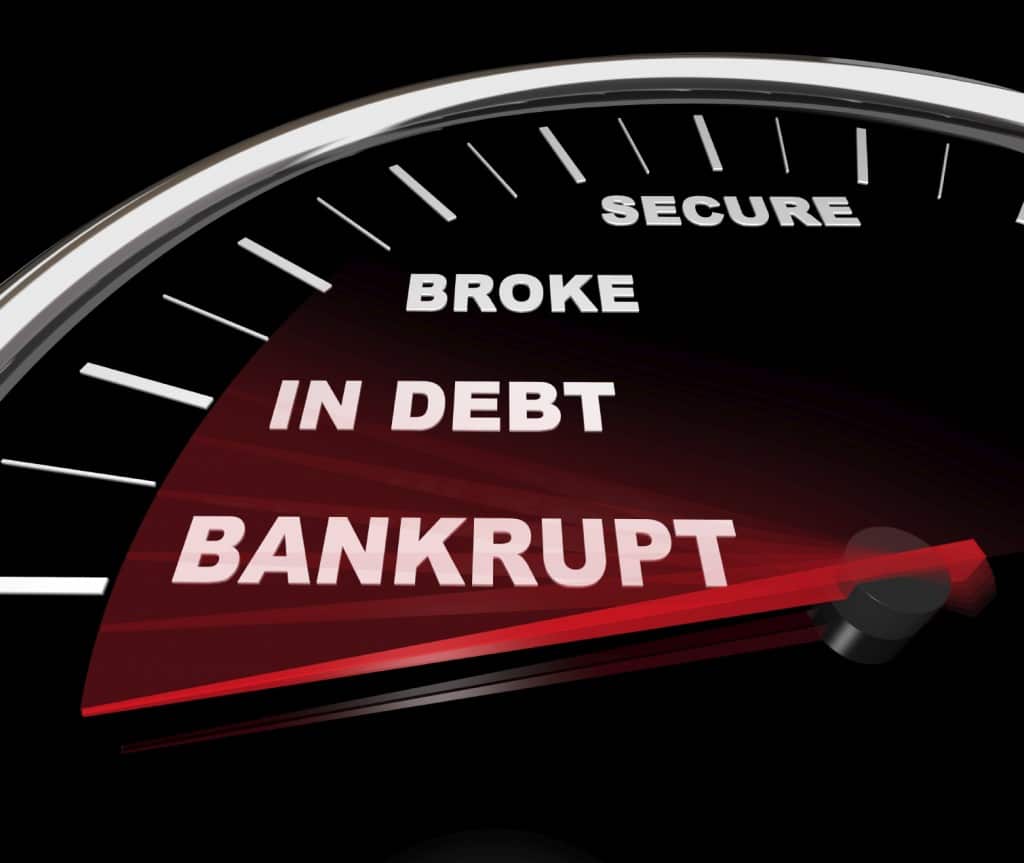
Mistakes made before and after filing for bankruptcy may cause you significant hardship. In fact, some mistakes may make you ineligible for debt relief. However, a skilled and dedicated attorney can help you avoid many of the most common bankruptcy mistakes.
What are Common Mistakes Before Filing for Bankruptcy?
Mistakes made before filing are not always intentional. Apprehension is a common emotion for people facing severe financial hardship, and when they do not have a lawyer, mistakes can happen. However, it is important to keep a clear head and avoid common filing mistakes, such as:
- Using your retirement funds: Never raid your retirement account to pay down existing debts. Plundering your retirement account is a bad idea for several reasons. First, your retirement account may be protected from your bankruptcy estate. ERISA protected retirement accounts are generally off-limits to creditors during bankruptcy. In addition, there are bankruptcy protections that can protect your mortgage and other important assets from being seized by creditors. Finally, some of the debts you may want to pay with your retirement funds could end up being discharged.
- Running up your credit cards: It is unwise to sign up for credit cards or cash advances before filing. Credit card debt is unsecured, meaning you can discharge it through Chapter 7 bankruptcy or Chapter 13 bankruptcy after completing a payment plan. However, if you use your credit card to purchase more than $675 of luxury goods 90 days before filing, you could be accused of attempting to defraud your creditors. Cash advances of more than $950 acquired 70 days before filing bankruptcy are treated the same way by the court.
- Transferring or omitting assets: Do not transfer assets before filing your bankruptcy petition. Never omit assets during the filing process. Failing to list these assets may lead to serious consequences. Your bankruptcy case could be dismissed. If you did omit assets and received debt relief, the trustee could revoke any discharges. In addition, you could face criminal charges.
- Failing to finish credit counseling: You are required to take a credit counseling session before filing your bankruptcy petition. If you fail to complete this requirement, the court will not grant you a discharge on your debts.
- Failing to disclose family loan repayments or transfers: If you transferred assets or repaid loans to family members in the two years prior to filing bankruptcy, you must disclose this information to your attorney.
Why is Filing for Bankruptcy Without an Attorney the Biggest Mistake of All?
Mistakes made before filing for bankruptcy can pale in comparison to errors made while filing. The biggest bankruptcy mistake is to file without an attorney, or “pro se.” Pro se litigants are expected to understand the United States Bankruptcy Code and the Federal Rules of Bankruptcy Procedure. In other words, they are held to the same standards as a bankruptcy attorney.
Filing without an attorney is risky because it is too easy to make errors that could destroy or delay any chance for debt relief. People filing for bankruptcy without an attorney may:
- File under the wrong chapter: There are significant differences between Chapter 7 bankruptcy and Chapter 13 bankruptcy. If your intent is to keep secured assets and you accidently file for Chapter 7 bankruptcy, you may risk losing those assets unless you convert your case to a Chapter 13 bankruptcy in time.
- File paperwork incorrectly: You may fail to file all of the necessary documents. Bankruptcy courts across the country have their own rules and forms. Certain paperwork may require detailed information and notice to creditors. You will be required to list this information without any errors or omissions.
- Fail to fight off creditors: You may have creditors who challenge whether your debts are eligible for discharge. Fighting creditor challenges without an attorney may prove to be difficult and time consuming.
Bankruptcy attorneys know how to use the law to best suit your needs. For example, if you are filing for Chapter 7 bankruptcy, an attorney will know which exemptions apply to your individual situation. Depending on where you file, exemptions allow you to keep important assets. There are also mechanisms in the bankruptcy code that allow you to strip secondary liens on your home. You may also be eligible to use the 506 cramdown, which could allow you to reduce the amount you owe on a vehicle after completing a Chapter 13 repayment plan.
An experienced bankruptcy attorney can help you avoid mistakes and pick the best strategies for debt relief. After decades of practicing, an attorney has developed debt relief strategies for hundreds or thousands of different financial situations. Since 1984, Kansas City bankruptcy attorney Neil Sader has helped clients in Missouri and Kansas seek debt relief under the U.S. Bankruptcy Code.
 Book an
Book an Email
Email Directions
Directions







